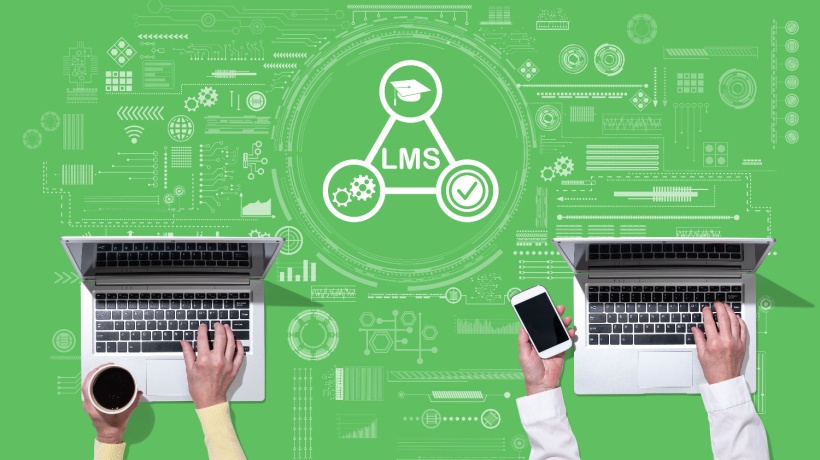7 Different Types Of LMS Support Services
You may not foresee any issues with your new LMS, but you never know what data migration issues, glitches, and authentication errors lie ahead. As such, LMS support services should be a top priority. The trick is finding one that offers the ideal level of support in your price range. While some may offer more advanced options, such as one-on-one tech assistance, this may be a waste of resources given that your L&D team already has a vast amount of expertise. Likewise, novice L&D departments may require more help to get the system up and running in a timely fashion. Here are 7 types of LMS support services to think about.
1. Phone Support
You have the ability to call the LMS vendor whenever you encounter an issue or need some help mastering the tool. Some Learning Management Systems offer 24/7 assistance, while others only operate during business hours. For this reason, it’s crucial to clarify this with the LMS vendor before making your final decision. Also, ask who will be ‘manning’ the phones and their areas of expertise. For example, do their phone reps know how to handle basic login errors? Can they deal with more advanced problems, such as programming glitches or data migration issues? You might consider calling them during the LMS free trial to see how long it takes to speak to a live person. For instance, you may have to wait on hold for half an hour due to heavy call volume and lack of sufficient service staff.
2. Email
Most, if not all, LMS vendors provide an email contact to address your questions or concerns. In some instances, they’ll even assign you to a rep who deals with a limited number of customers, which usually means faster replies and more personalized service. Once again, you can test this support feature out during the trial period by submitting a trouble ticket or email. See how long it takes them to respond. More importantly, how they respond to your question or issue. Are they knowledgeable and courteous? Or do they make you feel belittled for not knowing how to resolve the problem on your own?
3. Online FAQ
Frequently asked questions that are periodically updated by the LMS vendor and cover the most basic concerns or challenges, such as how to change a user’s password or generate new reports within the system. Some LMS vendors even include resource links in the responses so that you can explore the matter further. For instance, the reporting question might direct users to an online training tutorial that explains how to access that function via the dashboard.
4. Knowledge Base
An online training library that users can access to improve the functionality of the tool and quickly troubleshoot common issues. It usually includes everything from online training tutorials and video demos to written guides and podcasts. However, the LMS vendor must be willing to update the knowledge base regularly to reflect new topics/obstacles that arise. For instance, their latest update or add-on involves a learning curve. Thus, their knowledge base should expand to include helpful walkthroughs or videos that bring users up to speed.
5. User Community
Many Learning Management Systems now feature online user communities that are typically moderated by the LMS vendor. Even free, open source platforms have some form of user community where you can exchange tips and advice. The caveat is they must be active and have a significant number of willing participants to be truly beneficial. For instance, an online community with only 50 members, many of who haven’t been online for weeks, is a major red flag. Before you choose your next LMS, venture onto their user message board and ask a simple question. See how long it takes for someone to respond and if they are actually helpful.
6. Live Chat
Live chats allow you to speak directly to a customer service/support representative who can typically help with basic issues. For more involved matters, they may refer your trouble ticket to a specialist for follow-up. As an example, you’re not able to migrate your current learning resources to the new platform due to formatting issues, or you’re having difficult assigning user roles. Some LMS organizations have specific live chat hours where you can reach a rep, while others give you the opportunity to reach out round the clock. In addition, you should inquire about who handles live chats and what level of support they provide. For instance, if it’s a more technical LMS problem should you skip right to the email or phone support?
7. Webinars
Webinars are a more advanced and personalized support service that some LMS vendors offer their customers. This gives you the chance to meet their in-house team or Subject Matter Experts that serve as guest speakers. These events not only help you use the LMS more effectively but also improve your online training ROI, given that many feature helpful tips and tricks to overcome the common challenges and increase effectiveness. For example, how to use the reporting features to track your online training objectives and identify top performers. These live events also allow you to ask questions directly and engage with LMS vendors on a ‘face-to-face’ basis, even if you are just typing comments or questions for them to answer in real time. In some cases, LMS vendors simply record and post webinars to their knowledge base libraries instead of hosting them live.
The secret to finding LMS support services that align with your online training needs is to evaluate your goals and in-house expertise. Vet the LMS vendors to see which ones live up to your expectations and uphold their end of the bargain. This also helps you determine if your organization really needs that level of support or if it’s worth the added investment.
What are the warning signs that you should look for in your current LMS before deciding to buy a new one? Are your top LMS choices going to deliver the superior customer experience you deserve? Download our free eBook LMS Customer Experience: How To Find A Platform That Offers The Complete Package to discover why LMS Customer Experience really matters, the benefits of delivering a Superior CX for your organization, and how to set your LMS expectations before purchasing a new platform.








